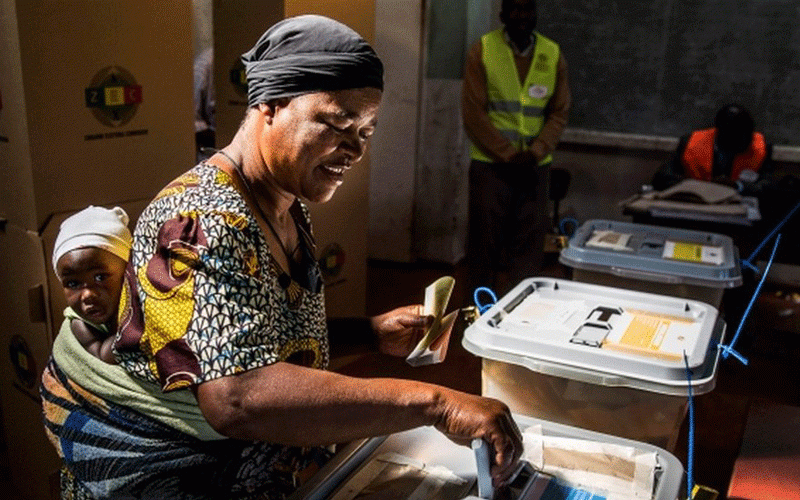
In anticipation of Zimbabwe’s upcoming elections on August 23, the pan-African research network Afrobarometer, in collaboration with its Zimbabwe national partner Mass Public Opinion (MPOI), has released the findings of its pre-election survey.
The results shed light on the voting preferences and public sentiment in the country.
While the initial analysis shows the ruling party, Zanu PF, leading with 35% of the votes and the main opposition party CCC with 27%, it is important to consider the nuances and challenges encountered during the survey.
One striking observation from the survey is the lack of clarity regarding the voting intentions of a significant portion of respondents, with 27% and 26% of voters in presidential and parliamentary elections, respectively, refusing to disclose their preferences.
Furthermore, an overwhelming 85% of Zimbabweans believe that the country is headed in the wrong direction, with 59% expressing concerns about potential political violence during the elections.
These figures have prompted diverse interpretations and discussions among various stakeholders.
Of particular interest is the misinterpretation and skepticism surrounding the survey data.
Some have questioned how it is possible for the majority of Zimbabweans to acknowledge poor living conditions while simultaneously indicating support for the incumbent party.
- Chamisa under fire over US$120K donation
- Mavhunga puts DeMbare into Chibuku quarterfinals
- Pension funds bet on Cabora Bassa oilfields
- Councils defy govt fire tender directive
Keep Reading
It is crucial to avoid isolating these figures from a broader context, as public opinion and voting patterns can be influenced by numerous factors, which may not always align perfectly.
Voting decisions are multifaceted and can be influenced by a variety of factors, including personal beliefs, party loyalty, candidate appeal, and campaign strategies.
While it may initially seem intuitive for respondents’ opinions on the overall direction of the country to align with their voting choices, this is not always the case. Furthermore, it is important to recognise that an individual's perception of the country's direction may not directly translate into their voting preferences.
It is worth noting that respondents may attribute the country's perceived failure to factors such as sanctions rather than placing the blame solely on the government or the incumbent. Additionally, individuals may have other reasons for supporting the incumbent, such as trust in their leadership, qualified to govern, development-oriented policies, and genuine concern for the people. These aspects scored favourably for the incumbent in the released Afrobarometer survey compared to his rival in the opposition.
Thus, while the survey data may present conflicting figures, it is crucial to analyse the results holistically, considering the complexity of individual decision-making processes.
In conclusion, the pre-election survey conducted by Afrobarometer and MPOI provides valuable insights into the sentiments and voting preferences of Zimbabweans.
However, it is essential to approach the data with caution, recognising the intricacies involved in understanding voter behaviour.
By considering the various factors that shape public opinion and voting decisions, we can gain a more comprehensive understanding of the complex dynamics at play in Zimbabwe's political landscape.
- Nyasha Mpani is the project leader for the Data for Governance Alliance Project at the Institute of Justice and Reconciliation in Cape Town







